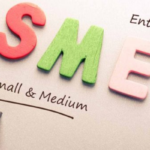…As small and medium-sized enterprises (SMEs) seek to grow in a competitive and unpredictable environment, experts are highlighting the importance of long-term thinking and sustainable practices.
While many businesses begin with strong early momentum, survival beyond the initial years remains a challenge. A key reason is the tendency to focus on short-term profits rather than building a strong and adaptable foundation. To move from survival to sustained growth, SMEs are being urged to adopt a new set of principles.
Read also: FG moves to regulate BDSPs to strengthen SME support system
Laying the foundation for sustainable growth
Experts stress the importance of establishing a clear vision and mission that go beyond financial returns. “Businesses need a purpose beyond profit.” A well-defined purpose helps guide daily operations, shape company culture, and build loyalty among customers, employees, and partners. This foundation ensures relevance as markets and technologies shift.
A resilient business model is also critical. SMEs are advised to monitor market trends, diversify income sources, and invest in innovation. “A flexible, forward-looking business model is essential” for weathering economic and industry-specific disruptions.
Read also: SMEDAN, Kwara Governor move to strengthen federal-state support for MSMEs
Ethical and sustainable practices play a central role in long-term success. Companies are expected to source responsibly, treat workers fairly, and reduce environmental impact. “Sustainability is now a competitive advantage.” Meeting these expectations builds trust and strengthens brand value.
Governance and compliance help reinforce business integrity. SMEs should implement clear frameworks, conduct regular audits, and adhere to industry standards. These actions support transparency, reduce risk, and build stakeholder confidence.
Financial discipline remains a cornerstone of business longevity. Experts recommend controlling costs, reinvesting profits, and seeking stable funding options such as equity or impact investment. “SMEs must control costs, reinvest profits wisely” and avoid overreliance on short-term capital.
Read also: SMEDAN creates over 90,000 jobs, supports over 116,000 entrepreneurs in Q1 2025
Adapting to stay competitive
People and technology are central to building agile and responsive businesses. “Employees are vital to growth.” SMEs are encouraged to invest in staff development, promote diversity and inclusion, and support well-being. A committed workforce enhances productivity and supports innovation.
Adopting digital tools, automation, and sustainable technologies allows businesses to operate more efficiently and meet evolving customer needs. “Businesses that embrace technology are better positioned to adapt quickly.”
Engagement with stakeholders and communities further supports long-term stability. Active involvement in local and social issues, alongside transparent communication, strengthens loyalty. “Corporate social responsibility (CSR) initiatives and transparent communication help build trust and loyalty.”
Read also: UK Insurtech Superscript raises £45m to boost global SME insurance reach
SMEs are also being encouraged to monitor sustainability metrics closely. This helps identify gaps, track progress, and demonstrate accountability through clear reporting. “Tracking key sustainability metrics enables businesses to assess performance.”
Looking ahead, future-proofing requires structured planning. Businesses are urged to conduct scenario analyses, manage risks, and maintain a mindset of continuous learning. “Future-proofing a business requires strategic planning, scenario analysis, and risk management.”
A recent Forbes report notes that reaching the seven-figure mark is difficult but achievable with a disciplined, sustainability-driven approach. SMEs that embrace long-term strategies are more likely to survive and thrive across generations.










